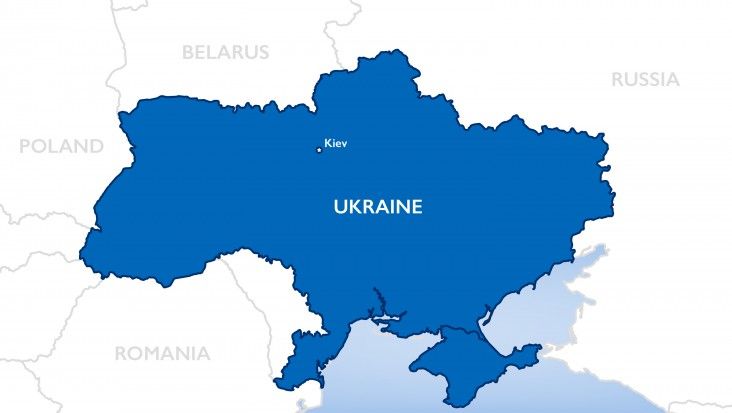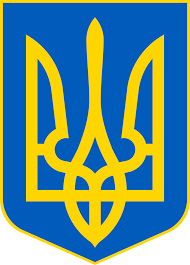
Protect Ukraine Now!
An unimpeded Russian invasion of Ukraine would fundamentally alter the geopolitical realities of the postwar era.
There is a real and immediate threat that Russia will invade Ukraine, in a brazen act of territorial aggrandizement whose aim is to snuff out that country’s effort to turn itself into a liberal democracy. For the second time in a year, the Kremlin has massed troops on Ukraine’s borders, this time at much higher levels than last spring. Earlier this year, President Vladimir Putin published a long piece entitled “On the Historical Unity of Russians and Ukrainians,” explaining how Ukraine in his opinion was not an independent country, but rather an integral part of Russia. He clearly sees the reincorporation of Ukraine (and Belarus as well) as part of the restoration of Russia to something approaching its former great-power status, and the legacy that he personally would like to leave to posterity. According to him, Russia represents an idea built around centralized power and traditional culture that is protecting the world from contamination by Western liberalism. Ukraine on two occasions, in the Orange Revolution in 2004 and the Revolution of Dignity in 2013–14, has sought to join Europe and the West, and its very existence as a Slavic liberal democracy undermines Putin’s narrative of history.
This is why Ukraine matters to us. Believers in liberal democracy hold that individual rights protected by the rule of law is not just a Western eccentricity, but something that is broadly desired by human beings around the world. Slavic peoples as much as anyone else deserve to be able to determine their own future, both as individuals and as nations. Liberal societies can keep as much of their traditional culture as they want, while allowing their citizens to enjoy basic political and civil rights. In addition, the world since 1945 has been governed by a norm prohibiting territorial aggrandizement by military means, a norm that Russia first violated by its seizure of Crimea in 2014. If Putin gets away with seizing and holding Ukraine, it will set a precedent for other powers. The most pressing other threat of military conquest is China’s stated desire to reincorporate Taiwan, and Beijing will clearly be watching the Western response to a Ukrainian aggression very closely.
___STEADY_PAYWALL___

In the decades following the fall of the Berlin Wall, we had been living in a world free from interstate conflict among great powers. It is hard for our elites to wrap their heads around the fact that times are changing, and that overt military threats are back on the table. After 1991, NATO had come to be seen less as a military alliance built around its Article 5 guarantee, and more as a political organization, membership in which signified alignment with the West and democracy. NATO membership had a talismanic quality for countries like Georgia and Ukraine, where joining the club would magically confer protection, regardless of considerations of time, distance, and military logistics. Belief in the talisman encouraged Georgia to take risks in dealing with separatists in Abkhazia and South Ossetia back in 2008, which then became Moscow’s excuse for intervening in those breakaway territories.
It was only after Moscow’s seizure of Crimea that NATO began waking up to the fact that some of the alliance’s newer members, the Baltic states, could actually not be defended from a Russian invasion (as a 2016 Rand study clearly outlined). Georgian and Ukrainian membership was even less plausible, given that Russian forces were already present on their territories, and NATO’s were far away. If Article 5 were taken seriously, Ukrainian membership would mean immediate alliance participation in an ongoing war. For these and other reasons, both Ukraine and Georgia saw their applications for acceptance into NATO’s Membership Action Plan put to the side over the past decade.
No one in NATO was willing to state flatly, however, that eventual membership for either country would not happen, keeping a small amount of hope alive. This has provided an opening for Moscow to justify the current force build-up and possible future intervention in Ukraine around the threat of NATO expansion. The charge that the alliance wants to station forces in Ukraine is a complete red herring, but one at which Moscow will continue to hammer away.
So how do we go about defending Ukraine now? NATO membership was never realistic. But short of that, there are plenty of things that NATO could do. Secretary Antony Blinken made a strong statement in support of Ukraine and warned Russia of “severe costs” should they invade. There are presumably further economic sanctions that Western countries could impose on Russia now being considered.
But, ultimately, a brazen military invention needs to be countered by military means. The United States has been supplying equipment to Ukraine for several years now (the same military aid that President Donald Trump threatened to withhold if President Volodymyr Zelensky didn’t help his re-election campaign). This aid needs to be quietly expanded and supported by other members of the alliance. Turkey, which has not been a particularly reliable alliance member in recent years, has nonetheless been supplying Ukraine not just with drones, but with drone manufacturing technology. This capability could be quite a game-changer if scaled up (see my earlier post on the effectiveness of Turkish drones). As another Rand report suggested with regard to the Baltics, there are a variety of unconventional measures that could be taken to raise the costs of a Russian attack and occupation.
A Russian invasion of Ukraine is unfortunately not the only overt military threat faced by our democratic friends. President Xi Jinping has made quite clear that he intends to reincorporate Taiwan, and China has been steadily building the military forces to act on this at some point in the future. It is only recently that business and foreign policy elites have begun to take this possibility seriously, but there has so far been no genuine discussion of what a war in East Asia might look like and the different escalation scenarios coming out of it (see my earlier post on this subject).
We also need to think about escalation in Europe in the wake of a Russian takeover of Ukraine. An event of this magnitude will have repercussions throughout the region, and will expose other vulnerabilities and opportunities along Russia’s borders. This is not the kind of world we should want to live in, but it is unfortunately one that is being imposed on us by the rise of this particular authoritarian power. If Russia can get away with invading Ukraine and undermining its democracy, global politics will change everywhere and the narrative of American decline will be strongly reinforced.
American Purpose newsletters
Sign up to get our essays and updates—you pick which ones—right in your inbox.
Subscribe






